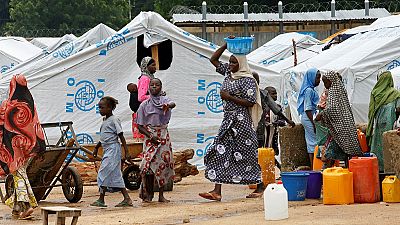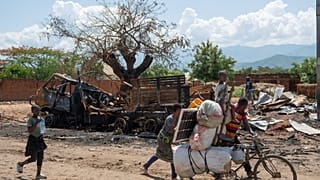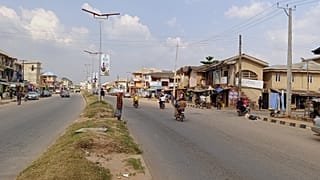Nigeria
The United States has announced over $41 million in additional humanitarian assistance to people affected by the Boko Haram insurgency across the Lake Chad region.
The current amount brings their financial contribution to $359 million since the fiscal year 2015. The ongoing conflict has resulted in severe food insecurity with more than 6 million people in need of emergency food assistance, and 2.6 million people are displaced.
The Lake Chad region includes Nigeria’s northeast, it extends to parts of Cameroon, Niger and Chad; areas known to be targeted by Boko Haram attacks.
The U.S. Ambassador to the United Nations Samantha Power made the announcement at a high-level event on the humanitarian crisis in the Lake Chad Basin, on the sidelines of the just ended United Nations General Assembly.
“In Nigeria’s Borno State…an est. 134 children will die every day of severe acute malnutrition unless they are treated” —
— US Mission to the UN (USUN) September 23, 2016AmbassadorPowerpic.twitter.com/QsXacm0SBs
The new funding will go to the United Nations (UN) and Non Governmental Organizations (NGOs) working in the region to help displaced people receive critically needed humanitarian assistance, including food, water, shelter, and services to address acute hygiene, protection, and nutritional needs.
The UN estimates an additional $542 million is needed to meet the humanitarian needs of people in the region for the last quarter of this year.
The US also called on other donors to contribute additional humanitarian assistance for the millions of people in the region whose lives have been affected by Boko Haram violence.












00:41
Mali and Burkina Faso restrict entry to US nations in tit-for-tat move
01:40
UN Finds dire conditions on first visit to Sudan’s el-Fasher since its fall
01:33
UN Security Council divided over Israel’s recognition of Somaliland
00:42
Anthony Joshua hospitalised after fatal car crash in Nigeria
02:01
UN Chief urges world leaders to choose peace over war in new year message
01:59
Nigeria aim for perfect group finish as Uganda chase AFCON survival